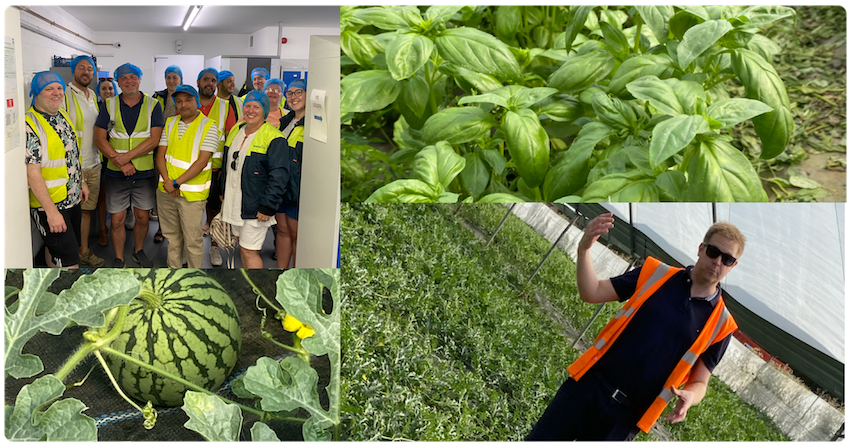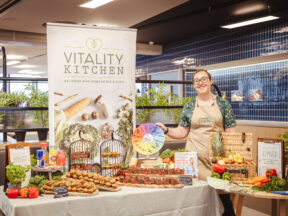Blogs
BM team’s farm to fork experience

Earlier this month I took bm team members – chefs, ops, HR and marketing to visit one of our farms. And this is why…
I didn’t grow up with any knowledge of farming. Unless you can include going to ‘goat petting’ and ‘pick your own strawberries’ as farm experience! I worked on a fruit and veg stall from the ages of 13 to 16. I then left the north of England to train to become a chef when I was 18. Which is when I became more interested in farming.
Changing seasons
It’s important for chefs to understand the work that goes into growing, even if it’s a humble onion. When a young chef visits a farm, they start to understand the seasons. This helps develop a chef’s skill for putting a dish together. Having a good relationship with our suppliers and farms helps us understand their struggles. Particularly this year with seasons starting later. Unseasonably hot weather has led to a drought which meant some produce is unavailable or of a different quality. Some outer leaves are scorched or smaller due to a lack of water.
If produce is in season, it will taste better, and the chef will not need to do as much to it. Also, it would have less air miles. There is nothing more annoying than I saw recently in a supermarket. They were selling veg from Kenya, when it was in full season in the UK. If we all try to buy in season and use produce grown within the UK, it may force the supermarkets to rethink. Some supermarkets are doing a great job to promote this way of thinking
It’s a good idea to visit the same farm in two different seasons. I would recommend spring, because this is every chef’s favourite season. We are starting to come out of the grey weather and long months of root vegetables and heavier food. Visit the farm again towards the end of autumn and the start of winter.
Share information
I like it when farmers reciprocate our farm visits and come to our restaurants to see how we prepare their food. This did happen pre pandemic. Farmers are always welcome in our restaurants, but like everyone they are still trying to get back up and running.
A chef should speak to their fresh produce supplier every few days to understand if there are any issues. Some vegetables are very temperamental to the slightest change in the weather. Because something like asparagus or cauliflower was good last week, it doesn’t mean it will be as good a few days later. Also, it helps if farmers understand your needs. Chef can’t moan if the supplier sends thicker asparagus if they wanted the thinner variety. It’s important to have a conversation.
Discoveries
This is what we found out on our visit;
- It takes only 12 hours for produce to get from the field to the kitchen
- The cost of fertiliser has tripled over the last 2 years
- Chefs and farmers both work long hours to produce something that we are proud to serve and sell.
- Farmers, like chefs want to show off their skills. So, if a chef shows a farmer appreciation it gives them justification to work hard.
Good farming and good food converge
As an admirer of philosopher chef and Blue Hill at Stone Barns’ restaurateur Dan Barber, I share his belief that flavour starts with chefs having an understanding of soil.
Dan Barber’s book The Third plate is a very informative book on understanding good farming and good food. Dan is a chef with a farming background. He still runs the family farm near one of his restaurants. He pioneered farm to plate over 10 years ago. Dan believes if something is grown well you don’t have to do anything to it.
If you want to know more about his ethos, download Dan’s book on audible. Be warned, it’s 14 hours long and there is a lot of information to take in. Dan’s episode of Chefs’ Table on Netflix might be an easier to digest option.
We will continue to take our teams to visit our farms and talk to our farmers to improve our understanding and produce even better food for our customers.





